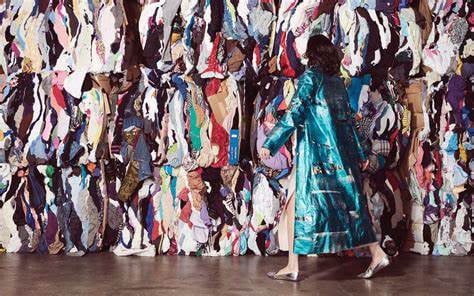Sustainable Fashion
Sustainable fashion is more than just a trend—it's a movement that promotes ethical and eco-friendly practices in the fashion industry. In this article, we delve into the world of sustainable fashion and discuss its importance and impact. We also share tips on how to build a sustainable wardrobe and support brands that prioritize ethical production and environmental responsibility. Sustainable fashion is about making conscious choices that benefit both people and the planet. By choosing sustainable fashion, you can reduce your environmental footprint and contribute to a more ethical and responsible fashion industry.
One of the key principles of sustainable fashion is reducing waste and promoting a circular economy. Fast fashion, which focuses on rapid production and consumption, contributes significantly to textile waste and environmental degradation. By opting for sustainable fashion, you can help reduce this waste and support a more circular fashion system. This involves choosing high-quality, durable pieces that are designed to last, rather than trendy items that quickly go out of style. Additionally, supporting brands that use recycled materials and implement sustainable manufacturing practices can further reduce the environmental impact of your wardrobe.
When building a sustainable wardrobe, it's important to consider the materials used in your clothing. Opt for natural and eco-friendly fabrics such as organic cotton, linen, and hemp, which are biodegradable and have a lower environmental impact compared to synthetic materials. Additionally, look for certifications such as Fair Trade, which ensure that the products are made under ethical conditions. By choosing sustainable materials, you can support responsible farming practices and reduce the use of harmful chemicals in the fashion industry.
Supporting sustainable fashion also involves being mindful of your consumption habits. Instead of constantly buying new clothes, focus on investing in versatile and timeless pieces that can be worn in multiple ways. This not only reduces waste but also saves you money in the long run. Consider shopping second-hand or vintage, as these options provide unique and stylish clothing while promoting a circular fashion economy. Additionally, take care of your clothes by following proper washing and maintenance instructions to extend their lifespan and reduce the need for frequent replacements.
Educating yourself about sustainable fashion practices is essential for making informed choices. Stay updated with the latest developments in sustainable fashion and support brands that are committed to ethical and eco-friendly practices. Engage with the sustainable fashion community and share your knowledge with others to raise awareness about the importance of responsible fashion consumption. By being an informed consumer, you can drive demand for sustainable fashion and encourage more brands to adopt ethical practices. Together, we can create a more sustainable and responsible fashion industry that benefits both people and the planet.
